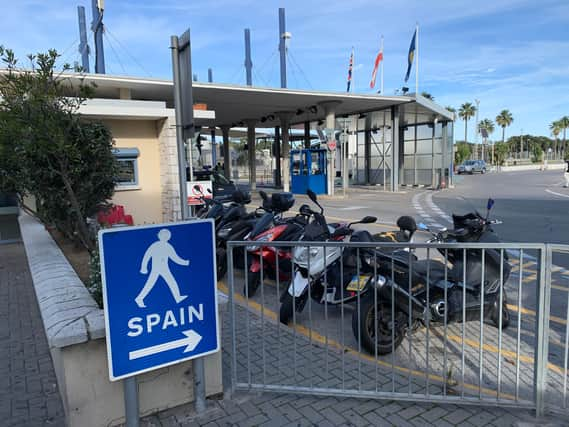British woman denied entry to Spain due to post-Brexit passport stamp rule


A British woman was refused entry to Spain at the border with Gibraltar due to a missing passport stamp required post-Brexit.
Linda, returning to Spain to see her son who lives there, told publication The Local she had been denied entry to the country by border control.
Advertisement
Hide AdAdvertisement
Hide AdShe had not been given an “exit stamp” by officials when she left Spain during her visit in the summer, causing border control to suspect she had not abided by the new rules for non-resident British visitors to Spain.
What is the post-Brexit passport stamp rule?
Following Brexit, Britons are required to have entry and exit stamps on their passports whenever they travel in and out of the Schengen area - an area consisting of 26 European countries.
Britons who don’t have the right to residence in an EU country can only spend up to 90 days out of every 180 within this area which includes Spain.
Linda’s missing passport stamp suggested she had stayed in Spain since her visit in the summer in June, exceeding the amount of time you can stay in the region.
Advertisement
Hide AdIf you exhaust the limit all in one go, you are required to stay outside the Schengen Area for 90 days afterwards.
Advertisement
Hide AdBeing a relatively new rule change this year means not all airport staff remember to stamp British passports each time they enter and leave the country - with travellers also forgetting to check if their passports have been stamped for both directions.
What happened?
“I was denied entry to Spain on 26 September due to my passport not being stamped on exit on a previous one-week visit to Spain, which started on 4 June,” said the 72-year-old.
“The guards initially stamped my passport to enter, then they noticed I had no exit stamp from that one-week visit in June, thereby classing me as an overstayer and subsequently marked the entry stamp with the letter F and two lines.”
Advertisement
Hide AdDespite proof she had returned to the UK through banking activity and the test and trace Covid-19 app “the border guards would not accept or look at any proof nor let me speak to anyone that could help,” she told The Local.
Linda was travelling with her daughter, who was allowed into the country as she hadn’t joined the previous trip with her mother in June.
Advertisement
Hide AdHowever, Linda had to return to Gibraltar to spend two nights before flying back to the UK.
“My son, who speaks Spanish, tried to explain that I had other proof of returning to the UK but the guards would not accept or even consider looking at it; they just kept insisting that I had no stamp, that I had overstayed and would be arrested as illegal,” she added.
Has the situation been resolved?
Advertisement
Hide AdNearly a month on and the situation has still not been resolved.
“It would seem there is no solution, the Spanish consulate in the UK will only accept my original boarding cards as proof of exit, and as flights were booked online I obviously don’t have them,” she told The Local.
“They will not accept screenshots or copies of any other proof I have.
Advertisement
Hide Ad“I have contacted my MP but was just directed back to the consulate thereby going round in circles.”
Advertisement
Hide AdSpain’s Interior Ministry told The Local that their department cannot comment on individual cases but stressed that Spanish border officials were aware of the existing legislation relating to British nationals, resident and non-resident.
A version of this article originally appeared on NationalWorld.com